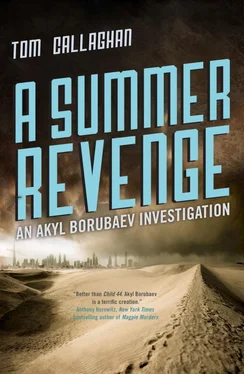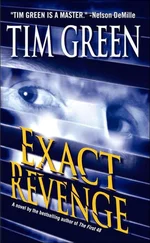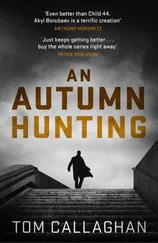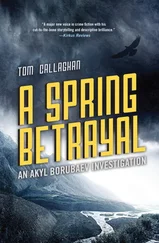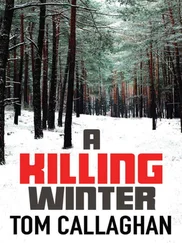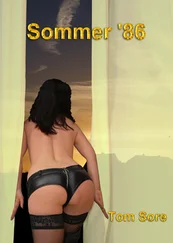“And what’s on this memory stick?”
Tynaliev frowned, and I remembered the sheer brute power and influence the man possessed, how he held secrets close as sin to his heart.
“You don’t need to know that, Inspector.”
I paused, reached for my cigarettes, decided this wasn’t the time to light up.
“You won’t be best pleased if I come back with Ms. Sulonbekova’s holiday photos,” I suggested, “even if they do show off her figure to best advantage.”
Tynaliev looked at the vodka, pushed it away.
“The memory stick contains details of a secret agreement I’ve made with a foreign power. You don’t need to know which one at this stage, or indeed what the agreement entails.”
“But if it falls into the hands of another country or your political enemies here?”
“For a policeman, you’re very smart,” Tynaliev said, and I could almost believe there was sincerity in his voice.
“Is she blackmailing you? Demanding money for the memory stick?” I asked.
Tynaliev frowned. “That’s the odd thing. So far, nothing. I think she stole the memory stick simply because she knew it was valuable to me. She took it because she was pissed off with me.”
He gave me another of those man-of-the-world smiles.
“I don’t think she means me any harm, politically. To be honest, her breasts are bigger than her brains.”
I did the polite smile routine again, decided it was time to dig deeper, ask the question that no man who cheats on his wife likes to answer.
“You’d promised to marry her, divorce your wife?”
“I’d never do that. But maybe she got the wrong impression. And besides…”
Tynaliev paused, looked away. I had a sinking feeling I knew what he was going to say, but I asked anyway.
“She’s a working girl, Minister? Is that the problem? You suspect it might be a honey trap?”
Reluctantly he nodded, poured yet another vodka.
“My marriage would be over if that became public knowledge. My career would be over if someone releases the information she’s stolen.”
I wasn’t happy. If I got the girl or the stick back, Tynaliev might decide I was surplus to his needs. A small accident seemed all too likely, in the interests of state security. Or in Tynaliev’s. Maybe they were the same.
“I won’t have any jurisdiction over there, Minister,” I said, wondering if there was a way to slip the noose so adroitly thrown over my neck.
“I’m afraid you don’t have a choice, Inspector,” he said, “because I have in my possession a very interesting piece of footage from the Internet. Regarding our mutual friend Morton Graves.”
“Oh,” I said and fell silent.
“Oh, indeed,” he said and gave his most wolfish smile.
I didn’t need to be shown the film; I’d taken it myself with a handheld phone outside Morton Graves’s villa, late at night. I saw him climb into his car, his height and shaven head unmistakable. The headlights flared, and then the image turned pure white, dazzling, before coming back into focus. The wrecked car sprawled in fragments and created a modern sculpture. Graves staggered out of the wreckage, twisting and whirling around, clothes on fire, burns decorating his head with patches of red and black skin. One of his hands had been severed, and he clutched it like a good-luck charm with the hand still attached to his other arm. The film was silent, but it was easy to imagine his screams.
Perhaps he remembered his victims’ pleas and cries in his cellar, relived the pleasures of the knife and whip. Possibly he thought of the wealth and power he was about to lose. I know he died in agony and alone.
That’s why I’d planted the bomb under his car.
So now Tynaliev had a murder charge to hold over me if I didn’t cooperate, and even if I did, I had no guarantee he wouldn’t use it. I didn’t ask how he’d acquired the footage; men like Tynaliev can get anything they want.
“I can see how this is a matter of state security, Minister,” I said, wondering how I was going to escape this mess. “I’ll go to Dubai as soon as I can get a visa. It’s my duty as a loyal citizen. Obviously, any information you can give me will be helpful once I’m on the ground.”
Tynaliev stood up and held out his hand. I shook it, and he escorted me to the front door. He asked for my passport, and I handed it over.
“Come back for this in two days’ time,” he said. “We’ll give you temporary diplomatic status.”
Which I suspected wouldn’t help me much in Dubai if it all got difficult.
“One last thing, Minister,” I said. “What do you want me to do about the girl?”
He looked at me, dispassionate, as if he were choosing between two joints of meat. Finally, he spoke. “I don’t really give a damn, Inspector. Fuck her or kill her, it’s your call. But keep her mouth shut. Or bring her back and I’ll silence her myself.”
And with that, the door shut behind me as if I were leaving a prison cell. As I walked back up the drive, it struck me I was very probably doing exactly the opposite.
A week later I was looking down at our final approach to Dubai International Airport, the guidance lights on the runway flickering and wavering in the heat. I’d left Bishkek’s Manas International Airport four hours earlier, as dawn broke across the Tien Shan mountains, turning the snow-covered peaks a gentle gold and casting long shadows into the valleys. The runway had been extended for the American supply planes that fueled the war in Afghanistan. Now the Americans were gone, and so was the money they had brought with them. I felt as if my entire country had been a well-paid hooker, lying back until the client had departed, leaving a handful of som on the table and tucking himself back into his trousers. No one likes to be fucked for money, but if you’ve a family to feed, what else can you do?
I sat back in my seat as the plane slowly rose from the runway and made for the mountains. After a few moments, we were above them, gazing down at their eternal beauty. Ancient glaciers have pushed the rocks into convulsions, scraping paths through and leaving towering crags and pinnacles no army has ever been able to cross. I sometimes forget how beautiful my country is, and how remote.
Even when the Silk Road passed through much of Kyrgyzstan, the trade it carried back and forth had little effect of the lives of the Kyrgyz nomads. The mountains kept us apart, helped us retain our culture, our beliefs. The plodding camels laden with silks and spices, gold and metalwork, jade and porcelain did little to change the annual ritual of taking flocks up to the high jailoo grass pastures in the summer and down into the valleys for the winter. And the voices of our manaschi reciting our ancient epic poem, the Manas , were always a counterpoint to the muezzin’s cry…
My newly acquired diplomatic status got me through immigration with no problems, and I wandered into the vast baggage hall. I’d been told Dubai International Airport is the busiest in the world, and I watched as thousands of passengers scooped up their suitcases, passed through customs and out toward a long line of waiting taxis. The air conditioning inside the airport was brutal, and so was the heat outside. I felt wrapped in a thick wet wool blanket, the sweat immediately springing to my forehead.
I reached the front of the line, dropped my bag in the taxi’s trunk, climbed into the back seat. The elderly Indian driver wore a lined face that looked like a road map of his native country.
“Denver Hotel, Bur Dubai,” I said, stifling a yawn. He nodded, hit the meter, pulled away from the curb. The morning rush hour in full flow, I watched as hundreds of cars jostled for position. Moscow was the biggest city I’d ever been in, but that couldn’t compare with the flyovers, roundabouts and multiple lanes of traffic that Dubai boasted. Dubai has oil, Kyrgyzstan has snow. Perhaps that’s why we have potholes, not Porsches.
Читать дальше
